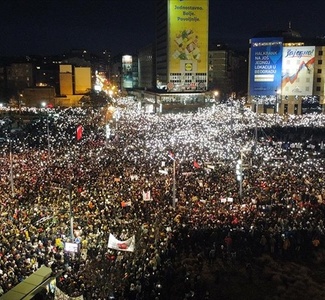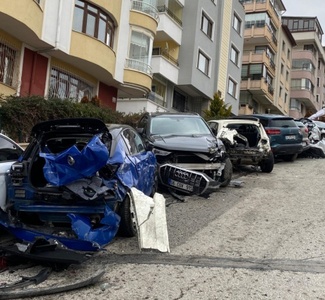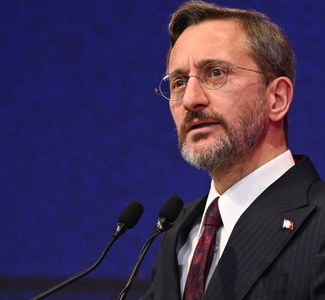EU, Tunisia to sign €1bn deal to combat people smuggling, support economy
The European Commission and Tunisia are set to sign off the details of a €1bn deal aimed at combating people smuggling and supporting the country's collapsing economy.

 Google News'te Doğruhaber'e abone olun.
Google News'te Doğruhaber'e abone olun. President of the European Commission, Ursula von der Leyen will be present during the signing of the agreement on Sunday in Tunisia, aiming to send a significant message in support of stability and growth in Africa.
Alongside Von der Leyen, Italian Prime Minister Giorgia Meloni, and the Dutch Prime Minister, Mark Rutte, will travel to Tunis to meet with Tunisian President Minister Kais Saeed.
Von der Leyen's trip comes one month after the trio first went to Tunisia to unveil a package involving €900m (£770m) of macro financial assistance with a further €150m to support a reform agenda set by the International Monetary Fund.
As part of the €1bn package, a further €105m will be funneled into a new partnership with Tunisia to combat people-smuggling, human trafficking and the continuing tragedies at sea.
The EU has been eager to stress the wider economic parts of the package in an attempt to break an impasse in negotiations following the declaration by the Tunisian president, Kais Saied, that his country would not be the EU’s “border guard”.
On the other hand, during a seminar titled "A New Strategy for the Mediterranean" held on Friday in Rome, Italian Foreign Minister Antonio Tajani emphasized Italy's dedication in reaching the agreement, which represents a financial commitment aimed at supporting Tunisia in its necessary reforms and combating human traffickers.
Speaking at the seminary, European Commissioner Margaritis Schinas confirmed Tajani's statements, acknowledging Italy's pivotal role in the agreement.
The seminar also dedicated considerable attention to the development of the entire African continent and its relationship with the European Union.
Tajani stressed that the African issue should not be approached from a colonial perspective but rather with Italy's expertise and knowledge, particularly in infrastructure, construction, and energy. He further emphasized the need to contemplate a Marshall Plan for Africa to address climate emergencies, terrorism, and diseases, as failure to do so could lead to increasingly concerning migration flows by 2050.
In relation to illegal immigration, the Italian government plans to hold a meeting with African heads of state and government on July 23 to develop a collective strategy against human traffickers.
Tajani highlighted that the European strategy aligns with Italy's vision, aiming to enhance Europe's presence in the Mediterranean and transform the sea from a graveyard into a prosperous area of commerce, well-being, prosperity, and peace.
Schinas admitted that Europe has previously failed in managing immigration issues but expressed optimism regarding the recent immigration agreements, which focus on relations with countries of origin, collective border management, and solidarity.
The discussion also shed light on the growth of Southern Europe, with Tajani stating that the Mediterranean should no longer be marginalized and that it plays a crucial role in ensuring stability, growth, and the preservation of the European way of life. Schinas emphasized that Southern Europe is emerging as an anchor of stability for the first time. (ILKHA)



















































